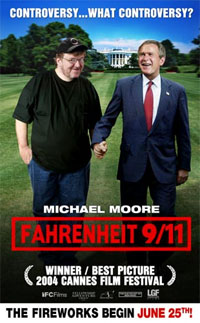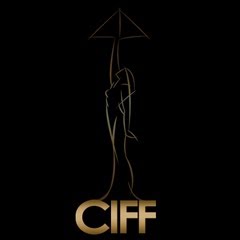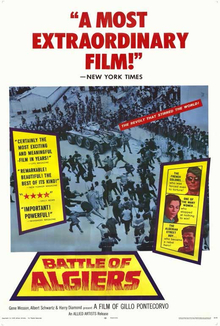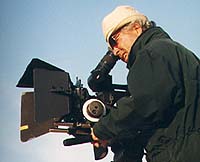Related Research Articles

Martin Charles Scorsese is an American filmmaker. He emerged as one of the major figures of the New Hollywood era. He has received many accolades, including an Academy Award, four BAFTA Awards, three Emmy Awards, a Grammy Award and three Golden Globe Awards. He has been honored with the AFI Life Achievement Award in 1997, the Film Society of Lincoln Center tribute in 1998, the Kennedy Center Honor in 2007, the Cecil B. DeMille Award in 2010 and the BAFTA Fellowship in 2012. Four of his films have been inducted into the National Film Registry by the Library of Congress as "culturally, historically or aesthetically significant".

The Cannes Film Festival, until 2003 called the International Film Festival, is an annual film festival held in Cannes, France, which previews new films of all genres, including documentaries, from all around the world. Founded in 1946, the invitation-only festival is held annually at the Palais des Festivals et des Congrès. The festival was formally accredited by the FIAPF in 1951.

Avery Franklin Brooks is a retired American actor, director, singer, narrator and educator. He is best known for his television roles as Captain Benjamin Sisko on Star Trek: Deep Space Nine, as Hawk on Spenser: For Hire and its spinoff A Man Called Hawk, and as Dr. Bob Sweeney in the Academy Award–nominated film American History X. Brooks has delivered a variety of other performances to a great deal of acclaim. He has been nominated for a Saturn Award and three NAACP Image Awards. Brooks has also been inducted into the College of Fellows of the American Theatre and bestowed with the William Shakespeare Award for Classical Theatre by the Shakespeare Theatre Company.

Fahrenheit 9/11 is a 2004 American documentary film directed and written by, and starring filmmaker, director, political commentator and activist Michael Moore. The subjects of the film are the presidency of George W. Bush, the Iraq War, and the media's coverage of the war. In the film, Moore states that American corporate media were cheerleaders for the 2003 invasion of Iraq, and did not provide an accurate or objective analysis of the rationale for the war and the resulting casualties there.
Jihan El-Tahri is a writer, director and producer of documentary films. She is a French and Egyptian national.

African popular music, can be defined as any African music, regardless of genre, that uses Western pop musical instruments, such as the guitar, piano, trumpet, etc. Afropop is a genre of music that combines elements from both African traditional music with Western pop music, characterized by the use of African rhythms and melodies, as well as western instrumentation and production techniques. Like African traditional music, Afropop is vast and varied. Most contemporary genres of western popular music build on cross-pollination with traditional African American and African popular music. Many genres in popular music of rock, metal, pop, blues, jazz, salsa, zouk, and rumba derive, of varying degrees, musical traditions from Africa cultured to the Americas, by enslaved Africans. These rhythms and sounds have subsequently been adapted by newer genres like hip-hop, and R&B. Likewise, African popular music have adopted Western music industry recording studio techniques. The term does not refer to a specific style or sound but is used as a general term for African popular music.

Saul Landau was an American journalist, filmmaker and commentator. He was also a professor emeritus at California State Polytechnic University, Pomona, where he taught history and digital media.

The Cairo International Film Festival is an annual internationally accredited film festival held in Cairo Opera House. It was established in 1976 and has taken place every year since its inception, except for 2011 and 2013, when it was cancelled due to budget limitations and political instability. It is the only international competitive feature film festival recognized by the FIAPF in the Arab world and Africa, as well as the oldest in this category.

Charles Henry Ferguson is an American angel investor and strategic advisor to early stage technology startups and venture capital firms, especially in artificial intelligence. He is also the founder and president of Representational Pictures, Inc. and director and producer of four feature documentaries, including No End in Sight (2007), which won the Sundance Special Jury Prize and Inside Job (2010), which won the Oscar for Best Documentary Feature. Prior to making films, Ferguson was a Senior Fellow at the Brookings Institution, a Visiting Scholar at MIT and UC Berkeley, and a visiting lecturer in the UC Berkeley School of Journalism. Earlier in his career Ferguson was the founder and CEO of Vermeer Technologies, developer of FrontPage, which was sold to Microsoft in 1996. Ferguson holds a BA in mathematics from UC Berkeley and a Ph.D. in political science from MIT. Ferguson is a life member of the Council on Foreign Relations and sits on the board of directors of the French American Foundation.

Raoul Peck is a Haitian filmmaker of both documentary and feature films. He is known for using historical, political, and personal characters to tackle and recount societal issues and historical events. Peck was Haiti's Minister of Culture from 1996 to September 1997. His film I Am Not Your Negro (2016), about the life of James Baldwin and race relations in the United States, was nominated for an Oscar in January 2017 and won a César Award in France. Peck's HBO documentary miniseries, Exterminate All the Brutes (2021), received a Peabody Award.

The Havana Film Festival is a Cuban festival that focuses on the promotion of Latin American filmmakers. It is also known in Spanish as Festival Internacional del Nuevo Cine Latinoamericano de La Habana, and in English as International Festival of New Latin American Cinema of Havana. It takes place every year during December in the city of Havana, Cuba.

The Battle of Algiers is a 1966 Italian-Algerian war film co-written and directed by Gillo Pontecorvo. It is based on action undertaken by rebels during the Algerian War (1954–1962) against the French government in North Africa, the most prominent being the eponymous Battle of Algiers, the capital of Algeria. It was shot on location in a Roberto Rossellini-inspired newsreel style: in black and white with documentary-type editing to add to its sense of historical authenticity, with mostly non-professional actors who had lived through the real battle. The film's score was composed by Pontecorvo and Ennio Morricone. It is often associated with Italian neorealist cinema.

The cinema of Lebanon, according to film critic and historian Roy Armes, is the only other cinema in the Arabic-speaking region, beside Egypt's, that could amount to a national cinema. Cinema in Lebanon has been in existence since the 1920s, and the country has produced more than 500 films.

2001: A Space Odyssey is a 1968 epic science fiction film produced and directed by Stanley Kubrick. The screenplay was written by Kubrick and Arthur C. Clarke. Its plot was inspired by several short stories optioned from Clarke, primarily "The Sentinel" (1951) and "Encounter in the Dawn" (1953). The film stars Keir Dullea, Gary Lockwood, William Sylvester, and Douglas Rain. It follows a voyage by astronauts, scientists, and the sentient supercomputer HAL 9000 to Jupiter to investigate an alien monolith.

The cinema of Tunisia began in 1896, when the Lumière brothers began showing animated films in the streets of Tunis.

Mark Cousins is an English-born, Northern Irish director and writer. A prolific documentarian, among his best-known works is the 15-hour 2011 documentary The Story of Film: An Odyssey.

Djo Tunda Wa Munga also known as Djo Munga, is a Congolese film director and producer. He is best known for his award-winning 2010 thriller Viva Riva!, the first feature film to be produced in the Democratic Republic of the Congo in over 28 years.
Lisa France is a director and screenwriter known for directing Anne B. Real (2003) and writing Love and Suicide (2005). Her 2017 documentary, Roll with Me, won awards at the Virginia Film Festival, the Woodstock Film Festival, and the Milan International Film Festival, and was a special selection at the Slamdance Film Festival.

The Jules Verne Awards were a set of annual film awards, awarded from 1992 to 2012 in Paris, France. The awards are for "celebrating achievements in arts, exploration, and conservation, in the tradition of French writer Jules Verne".

Kaouther Ben Hania also written Kaouther Ben Henia or Kaouther Benhenia is a Tunisian film director. Her 2017 film Beauty and the Dogs was selected as the Tunisian entry for the Best Foreign Language Film at the 91st Academy Awards. Her 2020 film The Man Who Sold His Skin was nominated for the Best International Feature Film at the 93rd Academy Awards. Her 2024 film Four Daughters was nominated for Best Documentary Feature at 96th Academy Awards.
References
- ↑ "Cuba: An Afridan Odyssey". African Film Festival New York. Retrieved 6 September 2021.
- ↑ "Cuba, une odyssée africaine" [Cuba, an African odyssey]. Le Monde diplomatique (in French). October 2007. Archived from the original on 15 January 2009. Retrieved 6 September 2021.
- ↑ "Cuba: An African Odyssey | African Film Festival, Inc" . Retrieved 10 December 2024.
- ↑ "RAW Ciné-club:". www.rawmaterialcompany.org. Retrieved 10 December 2024.